8 Foods & Drinks That Are Bad For Your Teeth
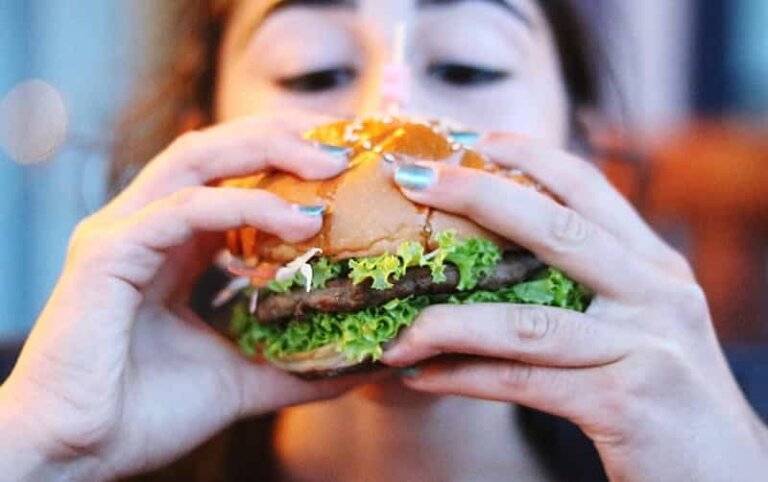
Your Choice of Food and Drink affects the health of your teeth and gums
The foods and drinks you consume play a critical part in oral health, because the foods you consume to nourish your body also feed the bacteria that naturally exist in your mouth. Some bacteria are more harmful to teeth and gums than others, and will thrive in environments that are high in sugar and acids. This could put you at higher risk of cavities and gum disease. Therefore, as a rule of thumb, we want to avoid foods and drinks that are sticky, sweet or sour (acidic).
Moreover, some foods are needlessly crunchy, hard, or difficult to chew on, and will cause excessive stress on the enamel of your teeth. While tooth enamel is very strong, it is not invulnerable to damage, including breakage, chips, and fractures. It is prudent to avoid such hard-to-eat foods whenever possible.
In this article, we will delve into the top 8 foods and drinks that have adverse effects on your oral health.
Table of Contents
1. Soda Pop
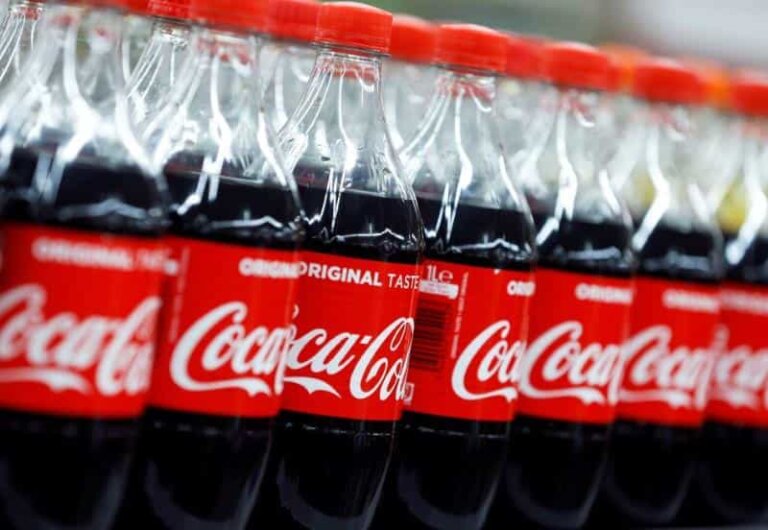
Soda pop, regardless of whether it bears the label “diet,” poses significant threats to your dental health. Consuming large quantities of carbonated soda can be as harmful to your teeth as crack cocaine (yes, you read that right). This is because carbonated sodas had a dangerous triad of qualities: it being liquid, sweet, and sour. Sipping on soda throughout the day bathes your teeth in sugar and carbonic acid, which will encourage acid erosion of your enamel, as well as feed the native bacteria in your mouth that will produce their own acids causing cavities. Additionally, soda has a drying effect on your mouth, reducing the protective saliva that normally counteracts acid’s harmful effects. And to top it off, dark-colored sodas can even lead to tooth discoloration or staining. A crucial note: avoid brushing your teeth immediately after consuming soda, as this can actually accelerate tooth decay.
In addition to sugary sodas, be cautious with other sweetened beverages like lemonade, energy drinks, sports drinks, and sweetened tea or coffee. Sipping on these drinks also gradually exposes your teeth to sugar, which fosters tooth decay. Whenever possible, opt for water—it’s the most tooth-friendly beverage available.
The best course of action is to eliminate soda pop from your diet altogether, and not just for your dental health but for your overall well-being too. This decision can reduce your risk of cardiovascular disease and diabetes.
If you can’t resist soft drinks, have a glass of water alongside your soda to help chase the acidity and sugar remnants after every sip. You could also consider switching to a diet soda variety sweetened with artificial sugar substitutes. Look for brands that use xylitol, a sugar substitute that actually inhibits bacteria growth since they can’t digest it like regular sugar. Your smile will thank you for making these mindful choices.
2. Coffee and Tea with Sugar
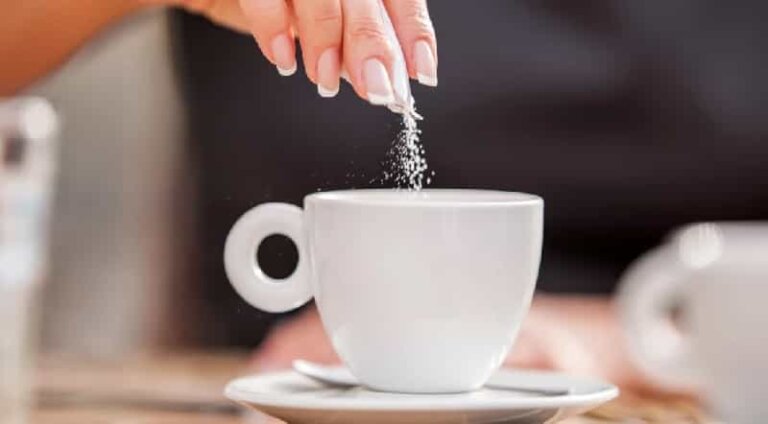
In their natural forms, coffee and tea can be healthy beverage choices, brimming with antioxidants and caffeine to give you that much-needed morning boost. However, there’s a catch – the sweet temptation of adding sugar to your brew. It’s this sugar that becomes the prime suspect when it comes to causing tooth decay, especially if you’re a regular consumer.
A practical alternative to mitigate this dental risk is to swap out sugar for artificial sweeteners, such as xylitol. Alternatively, you can savor your coffee in its purest forms: black or with just a touch of milk or cream.
But there’s another downside to caffeinated drinks like coffee – they tend to dry out your mouth, which in turn elevates your risk of developing cavities. And let’s not forget about those unsightly stains coffee can leave behind on your teeth.
If you do indulge in coffee, it’s essential to counteract these potential drawbacks. Drinking plenty of water alongside your coffee can help combat its drying effect. Moreover, strive to keep your add-ons to a minimum, preserving the health of your teeth while still savoring that morning cup of joe.
3. Citrus Fruits and Juices
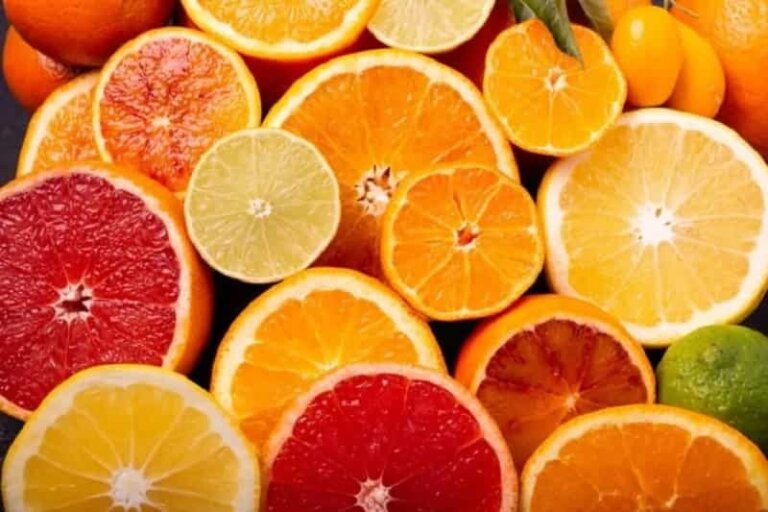
Citrus fruits, like lemons, limes, oranges, and grapefruits, are not only delicious but also packed with vitamin C and antioxidants, which are fantastic for your health. However, there’s a dental downside to these zesty delights. The combination of natural acids and sugars they contain can pose a threat to your enamel, leaving your teeth more vulnerable to the perils of tooth decay.
To safeguard your dental health, it’s advisable to limit your consumption of citrus fruits, whether in their juicy or whole fruit form. If you’re eager to enjoy their antioxidants and vitamins, do so in moderation, ideally during mealtime, and follow up with a good rinse of water. Additionally, refrain from brushing your teeth immediately after indulging in these citrus treats; it’s best to wait for an hour or more to allow your teeth to naturally remineralize before picking up that toothbrush. By taking these precautions, you can continue to relish the tangy goodness of citrus fruits while preserving the well-being of your precious teeth.
4. Candy
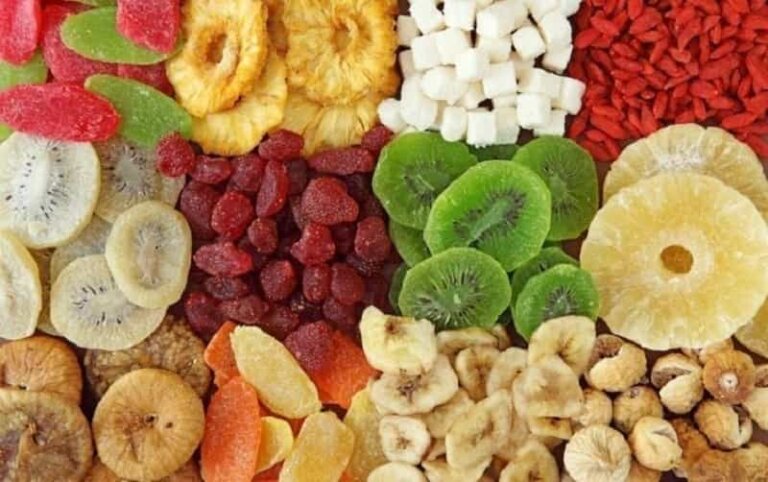
It’s no secret that candy is not your teeth’s best friend. The reason is simple: candy is sugary, and the tiny bacteria in your mouth absolutely relish sugar, converting it into acids that can wreak havoc on your tooth enamel, ultimately leading to tooth decay. Sour candies are even worse. The acidity in these treats kicks tooth decay into high gear, making them an even more formidable adversary for your dental health.
Indulging in too much candy on a regular basis can spell trouble for your teeth. But fear not, there are alternatives when you’re craving something sweet. Consider reaching for a square of dark chocolate instead. Dark chocolate, particularly with a cocoa content of 70% or higher, offers several health benefits when consumed in moderation: it is rich in antioxidants and has been shown to improve heart health, cholesterol levels, and lower risk of type 2 diabetes.
Even better, you can opt for sugarless gum, especially those that contain xylitol. Xylitol is an artificial sweetener that confuses bacteria into thinking it’s real sugar. However, the bacteria can’t digest xylitol, leading to their demise. It’s a double win – you satisfy your sweet tooth and combat harmful bacteria in one go, all while keeping your dental health in check.
5. Dried Fruit

A daily serving of fruit is undoubtedly a key component of a healthy diet. However, some individuals opt for dried fruits as a seemingly wholesome snack alternative, such as apricots, figs, prunes, and raisins. While these dried delights may offer sweetness, they also possess a sticky nature that can lead to dental problems.
The trouble with dried fruit lies in its stickiness; it has a knack for getting wedged in between your teeth and settling into the deep grooves on tooth surfaces. This leaves behind copious amounts of sugar, setting the stage for potential dental disaster. The lingering sugar can elevate your risk of dental decay and gingivitis, conditions you’d surely want to avoid.
If you’re fond of dried fruits, it’s essential to take some precautions. After indulging, make sure to rinse your mouth with water, which can help wash away residual sugars. Then, promptly follow up with thorough brushing and flossing to remove any lingering bits.
Even better, if the opportunity arises, consider swapping out dried fruits for their fresh counterparts whenever possible. Fresh fruits not only offer a healthier option but also reduce the sticky situation that dried fruits can create for your teeth. Your dental health will thank you for this thoughtful switch.
6. Potato Chips
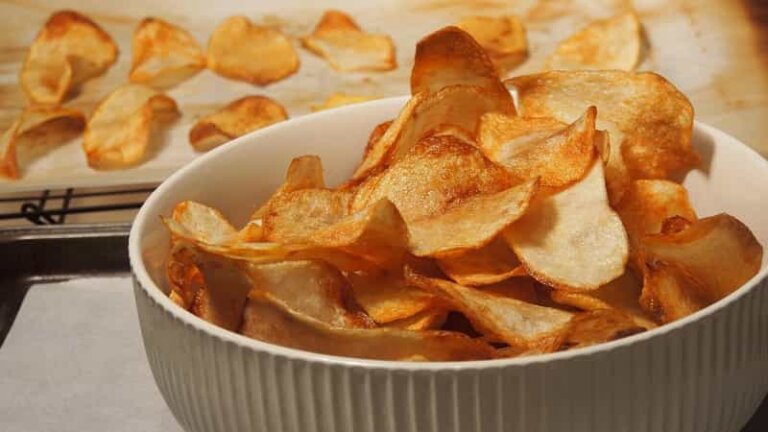
Who can resist the delightful crunch of a potato chip? It’s a tempting snack for many. However, beneath that satisfying crunch lies a dental concern – potato chips are packed with simple carbohydrates, primarily in the form of starch. This starch readily transforms into sugar, which has a tendency to become trapped in the nooks and crannies between your teeth, providing a feast for the bacteria residing in plaque. This, in turn, significantly heightens the risk of tooth decay and the development of gingivitis.
Furthermore, certain hard chips have the unfortunate potential to cause teeth to break or chip, potentially necessitating an unplanned visit to the dentist’s office.
If you do choose to indulge in these snacks, there are steps you can take to mitigate the risk of tooth decay. Pair your chips with other healthy foods, such as cheese, which can help neutralize the sugar and acid content. Additionally, on the day you enjoy chips, be extra diligent with your flossing routine to ensure you remove all the food particles that can contribute to plaque buildup.
By incorporating these precautions, you can savor your potato chips while minimizing their impact on your dental health.
7. Ice Cubes
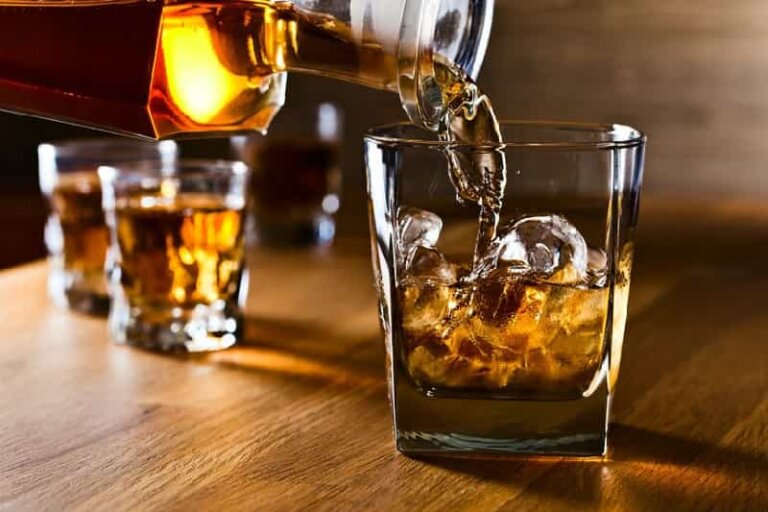
It might seem counterintuitive, but many people mistakenly believe that chewing on ice is a tooth-friendly habit. After all, ice is made of pure water and doesn’t contain any harmful additives or sugar. Plus, that satisfying crunch is oddly satisfying.
However, the reality is quite different. Chewing on ice is a dental no-no because it can cause significant harm to your tooth enamel, leaving you vulnerable to dental emergencies like chipped, cracked, or broken teeth, and even loosened crowns. If you have a penchant for chewing ice, it’s high time to consider breaking that habit.
Ice is best suited for its primary role – cooling down your beverages. So, by all means, use it for that purpose, but please refrain from chewing on it. Your teeth will thank you for the preservation of their integrity.
8. Alcohol

Alcohol is widely acknowledged as having detrimental effects on overall health, contributing to issues like alcoholism, malnutrition, chronic pancreatitis, alcoholic liver disease, and cancer. Yet, its impact extends to oral health as well.
For those who consume alcohol in excess, a common consequence is a frequently dry mouth. This occurs because alcohol is a diuretic, promoting dehydration, which in turn leads to reduced saliva production. Less saliva means a heightened risk of tooth decay.
To combat the dryness and maintain oral hydration, it’s advisable to reduce alcohol consumption, prioritize ample water intake, and consider using fluoride rinses and oral hydration solutions.
The concerns surrounding alcohol don’t end there. Alcohol significantly increases the risk of oral cancers, including those affecting the mouth, throat, voice box, and esophagus. The danger compounds when alcohol is combined with smoking, as it facilitates the penetration of harmful tobacco chemicals into your body’s cells, causing irreversible damage to DNA.
In light of these risks, it’s prudent to be mindful of alcohol consumption not only for your overall health but also to safeguard your oral well-being.
Take All of Life’s Pleasures in Moderation
It’s important to note that while these 8 foods and drinks may pose risks to your oral health, it doesn’t mean you have to entirely forgo the pleasure of indulging in them. Moderation is the key. Simply remember to rinse your mouth promptly with water after consumption to help neutralize any sugars or acids. Additionally, allow some time for your mouth’s pH to return to a neutral state and for your teeth to remineralize before you engage in brushing and flossing.
For more guidance on enhancing your brushing and flossing routines, be sure to explore other informative articles on dental care from Atlas Dental:
By striking a balance and following these oral hygiene tips, you can continue to enjoy your guilty pleasures while maintaining a healthy smile.
We also think you’ll like…
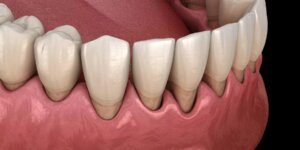
Gum Disease
Gum Disease What Is Gum Disease? Gum disease, also known as periodontal disease or periodontitis, is a common dental problem that affects millions of people
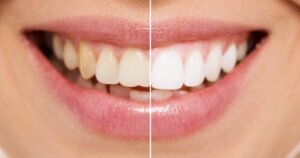
Smile Makeover
Smile Makeover What Is a Smile Makeover? A confident smile can brighten up a room and leave a lasting impression. It is a reflection of
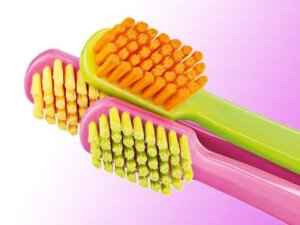
9 Tips to Brushing your Teeth Better
9 Tips to Improve Tooth Brushing Technique From a young age, you were instilled with the importance of brushing your teeth at least twice daily.
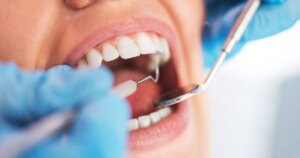
Teeth Cleaning Post-Visit Instructions
Teeth Cleaning Post-Visit Instructions What You Should Do After Your Teeth Cleaning Appointment To Ensure A Long Lasting, Bright And Healthy Smile. When was the
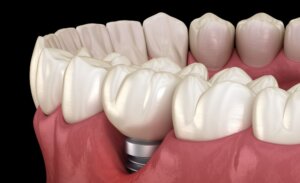
Dental Implant Failure
Dental Implant Failure What Is Dental Implant Failure? Dental implants are one of the most popular and effective solutions for replacing missing teeth. They are
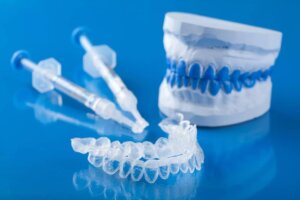
Take-Home Teeth Whitening Trays
Take-Home Teeth Whitening Trays What Are Take-Home Teeth Whitening Trays? Teeth whitening trays for at-home teeth whitening are custom-made plastic oral appliances that fit over

